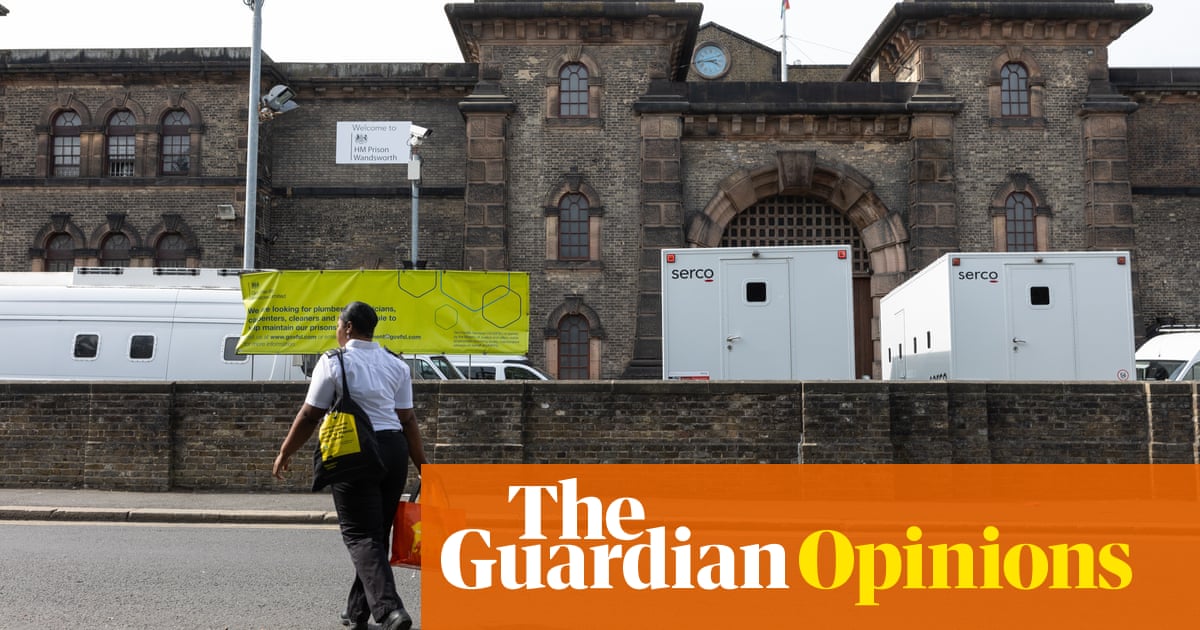
Britain’s prison system is collapsing and Britain’s penal policy with it. This is good news. Both are lost in the back alleys of social policy. This is not the result of soaring crime but of mindless populism, which equates more prisons with more votes.
Britain’s prison population is now approaching capacity at 88,016. This has tripled since 1960 and is at an all-time record. This week the justice secretary, Alex Chalk, is talking of beds in police stations and portable buildings in prison yards – and even of setting prisoners free. He wants to deport foreign criminals, who make up 12% of the prison population. He wants to slash remands in custody and end short sentences for non-violent crimes. He believes in more early releases and hopes a wide variety of non-custodial punishments – such as cleaning graffiti – could be introduced. Necessity has bred a raging liberal. I fear for his future.
These proposals have been caused not by an advent of reformism but by a U-turn sparked by panic, one largely induced by the government’s own measures. Boris Johnson and Rishi Sunak have both tried introducing tough-on-crime changes in a frantic bid for votes – sadly supported by Labour. They hired more police officers to “charge more people … reduce crime and have more people in jail”, making good on a 2019 manifesto promise. They pushed back parole eligibility for offenders with a sentence of more than seven years, and suggested harsher imprisonment for offences such as dangerous driving, knife carrying and damage to memorials (up to 10 years in jail).
When a rare, sensible justice secretary, David Gauke, said that short sentences of six months or less were pointless if not counterproductive, he was sacked. Judges got the message and imprisoned people for longer. In August, Sunak called for “automatic” prison sentences for repeat shoplifting. In 2021, he announced the government was to build 500 new cells for women. Of the 3,600 women who are now in prison, virtually none of them are a danger to society or to anyone but themselves. Their imprisonment – and that of many non-violent men – is state cruelty.
Nothing in the current crisis is a mystery, since it has been forecast every year for a decade. With one voice ministers cry for more prisoners, and with another they cry that there is no room. Each time the government announces a prison building programme, currently of about £4bn over the next three years.
There is as yet no sign of its implementation, though it is less than Sunak still means to spend every year for 10 years on a railway from Birmingham to a London suburb that nobody wants.
Prison reform is one of the most thankless areas of social science, because it runs slap into the brick wall of politics. Britain is not a more criminal country than elsewhere in western Europe, its politicians just choose to imprison far more of their population. Chalk could have pointed out that regimes that are the opposite of Britain’s, such as in Norway, have pursued similar policies to those he is proposing and have seen greatly improved rates of rehabilitation and non-reoffending. Norway’s prison population is now proportionately one-third of Britain’s. If there is now to be a genuine slashing of the prison population – more bail, more early release, more community sentencing, less imprisonment and more probation – there must be research into the results. Let’s see if it works.
The hope must be that prison hysteria can die down. Politicians must see British prisons as they are, academies of repeat crime and dens of violence, mental illness and drug addiction, their inmates now locked up 23 hours a day. Short sentences are a misnomer. In most cases they are life sentences. At very least this is the moment to abolish them.
This article was amended on 16 October 2023. A previous version described Alex Chalk as the prisons minister, rather than the justice secretary; and David Gauke as a former prisons minister, rather than a former justice secretary.
Simon Jenkins is a Guardian columnist











